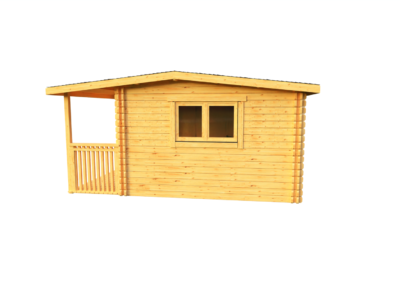Finding the ideal environment can make all of the difference when writing. That is why so many authors have written their masterpieces in garden sheds.
Prepare a space that feels like a retreat by gathering writing supplies and tools, music to boost creativity, as well as setting aside time for meal times and goal setting sessions.
1. Create a Writing Space
Created a writing space helps to focus you on your task at hand and organize all writing materials in one location.
Decide on a quiet environment to allow for uninterrupted focus, such as using rugs, wall hangings or spray foam insulation to reduce noise levels while also creating an inviting and cozy space. Adding these items can also add warmth and coziness while providing additional soundproofing benefits.
Decorate the space with items that inspire you, from artwork to photos. A few potted plants that improve air quality may also make a nice addition. Once ready to work in your space, set up a desk and chair combination that are comfortable enough to sit for extended periods, ideally including footrests or small sofas for breaks in between tasks.
2. Set a Schedule
Writing retreats enable writers to devote an extended period of time devoted entirely to crafting their craft. Activities designed to stimulate mind and body can help spark creative juices that are crucial in developing compelling stories.
Though staying put at home may be tempting, choosing an outside location for a writing retreat is often best. This could range from as simple as booking a hotel nearby to exotic lanais in Hawaii – anything goes!
As part of your retreat planning, ensure each participant has an idea of their personal goals for attending. This will allow you to establish an agenda tailored specifically to them – for instance if they’re working on their first draft, encourage them to write as often as possible!
3. Designate Areas for Reflection
As part of your writing retreat planning, it’s essential to establish clear goals. These may range from finishing a draft of a chapter to exploring potential markets for your work.
Make sure to schedule time for simply relaxing or doing nothing – this can help provide ideas for your writing project and could even serve as an opportunity to gather feedback by hosting an informal critique session with fellow academics.
Bring along someone to help keep you accountable for achieving your writing goals and keep household chores complete, or arrange for family members to look after pets while you’re gone.
4. Designate Areas for Activity
Writing is more than sitting behind a computer screen: it involves engaging with nature, engaging the senses, and making meaningful connections with people around us.
An effective writing retreat must provide spaces and activities to foster creativity and engagement, such as sensory spaces – planted with flowers, grasses, bushes and trees with various textures that excite children’s senses when brushing past; sensory kitchens; log or stump walls to create secret areas; or climbing walls.
Setting attainable goals during retreats is vital to sustaining momentum and achieving success. From setting daily writing targets to reviewing research materials, having clear objectives keeps you on the right path towards reaching them – meeting these milestones boosts motivation while accomplishing them gives a feeling of achievement that fuels motivation. Setting aside some time for contemplation also deepens awareness and fosters creativity.
5. Create a Social Environment
Writers need the opportunity to focus on their craft without interruption, and retreats offer them that chance. Additionally, collaborative projects that benefit from being supported by an entire community are another option available here.
One way to encourage collaboration is through hosting workshops or writing exercises. These can help unleash creative energies while providing insight into scripts.
Another effective strategy to build community support for your retreat is through marketing materials, such as posters and flyers distributed at local libraries and community centers as well as social media posts announcing it to potential attendees. Doing this can foster an atmosphere of belonging among writers in attendance who can connect with one another and learn from one another’s successes and challenges.
6. Create a Comfortable Environment
Writing retreats provide authors the chance to immerse themselves in their stories. Uninterrupted work enables writers to gain a better understanding of characters, arcs, themes and central questions within their stories.
As such, it is crucial that the environment of a writing retreat be both comfortable and conducive to learning. This may include ergonomic furniture like computer chairs with lumbar support or adjustable desks as well as warm, functional lighting.
Writers should remove themselves from other obligations and schedule any errands on the day of their writing retreat, making it more difficult to break their concentration. They can do this by prepping their house with cleaning, pet care and plant watering arrangements – something which will prevent anyone from interrupting writing time – including using code 5OFFNOW for 5% off screenplay analysis!
7. Create a Safe Environment
Writers need a safe environment free from distractions and interruptions to achieve optimal creativity, and retreats can be an ideal way to do just this.
Writing retreats provide writers with a supportive atmosphere in which to hon their skills and express their creativity. Workshops and writing exercises may also be part of these retreats; additionally, feedback sessions may also be included.
Even when getting away isn’t feasible or affordable, you can still create an effective writing retreat in your garden building. Search out nooks and corners where you can tuck yourself away from distractions; one writer I know hid herself away in a vine-covered alcove that prevented her from hearing telephone and doorbell rings, even drawing curtains as visual blockades! After your retreat is completed, reflect upon its success to gain valuable insights that could benefit future writing successes.
8. Create a Clean Environment
No matter if you prefer writing with pen in hand or tapping away at keyboard, having ample lighting is key for productivity. Consider installing dārza ēkas with glass windows or opt for a revolving summer house so you can track the sun throughout the day.
An essential step of writing retreat planning is setting and reviewing realistic goals, from research an article to revising dialogue in a screenplay.
Even if you can make yourself alone at home without roommates, children, or distractive pets to disrupt your focus during this special time you have set aside, you must retrain your brain in order to remain attentive during that period of time. It may take days before finding your groove; nevertheless, persevere and you will soon see rewards for your hard work!
9. Create a Healthy Environment
Writing retreats should provide a healthy environment in order to be productive. Give yourself the best chance at success with nutritious meals and mindful breaks to boost energy and focus, and set aside time for reflection to deepen self-awareness and gain important insights into the writing process.
Ideal writing retreat locations should be away from home and other sources of distraction, such as children, roommates or pets that might interfere. While your garden shed could work as an informal writing retreat space (provided there are no children, roommates or pets that might disturb), many writers find it more helpful to visit another spot for their retreats.
At such events, remote settings like cottages or beach houses offer tranquillity that inspires creativity. By relieving responsibility for other tasks, attendees are free to focus on writing without guilt – giving them more time and focus for producing high-quality finished products.
10. Create a Fun Environment
Retreats provide writers a structured timeout from everyday life in order to focus on writing. A retreat could involve anything from taking over your garden shed for writing alone to more luxurious options like Hawaii.
An effective writing retreat requires setting an exacting schedule, eliminating distractions and setting clear boundaries. Make it difficult for others to interrupt you – order meals delivered, shut off phone and social media, use binaural beats or similar audio tools to help get into writing mode more quickly, use binaural beats or similar tools as writing tools and ensure all essential supplies and amenities are at hand before commencing writing retreat.
After the retreat is complete, encourage participants to fill out an evaluation form and provide a self-addressed stamped envelope for feedback. This information can help plan future retreats as well as enhance curriculum. It may also serve to pinpoint any areas that could use improvement – or identify sources of problems.






